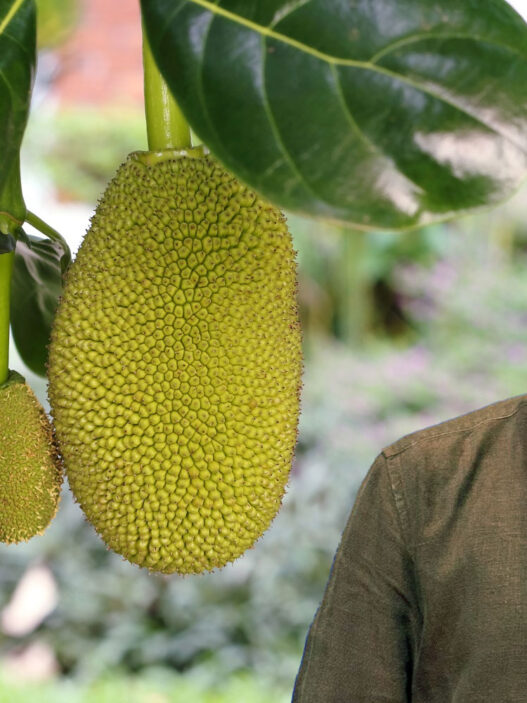On the outskirts of Hyderabad, nestled among neem trees and red soil, two sisters made a bet most wouldn’t dare.
Veda and Sudha Gogineni, both with promising overseas offers in hand and engineering degrees to boot, turned their backs on six-figure salaries and the comforts of corporate life abroad. They weren’t running from anything. They were running toward something—a vision wrapped in turmeric, tulsi, and ashwagandha.
Their startup, Earthful, is now clocking over ₹15 crore in annual revenue. It’s not just another wellness brand selling powders in earthy jars. Earthful is a full-blown health-tech brand rooted in Ayurveda but modern in its packaging, positioning, and science.
The leap wasn’t accidental. It was built on three things: a grandmother’s kitchen wisdom, a deep frustration with synthetic supplements, and a hard look at the growing gap between Indian tradition and modern nutrition.
Where It All Began
Veda, the elder sibling, had studied biotechnology. Sudha, with a background in product design, always had an eye for branding and user experience. What began as a weekend side hustle—formulating herbal teas and plant-based protein blends—quickly started to show demand on Instagram. Within months, they launched Earthful officially.
But it wasn’t easy.
“No one takes you seriously when you say you’re launching an herbal nutrition brand out of your parents’ garage,” Sudha said in an interview. “We were laughed out of meetings. One investor asked if we planned to wear sarees and chant while selling our products.”
The sisters took that skepticism personally. And turned it into fuel.
They built out an R&D team, got GMP-certified labs on board, and launched a direct-to-consumer platform targeting millennials and Gen Z shoppers looking for clean-label, India-rooted supplements. Think iron-rich moringa tablets, hormone-balancing shatavari mixes, and adaptogenic powders for stress—all backed by science, not just nostalgia.
The Shark Tank Moment
Earthful’s real inflection point came when they stepped onto the Shark Tank India stage.
Clad in understated earth tones and armed with months of meticulous data, the Gogineni sisters pitched Earthful as India’s answer to Ritual and Moon Juice—brands that had exploded in the West.
The sharks bit.
Not only did Earthful secure funding, but they also gained mentorship and access to a powerful distribution network. Sales skyrocketed. Repeat customer rates climbed to over 50%. Their packaging and product formulations got a sleek upgrade.
More importantly, Earthful moved from being an Instagram curiosity to a legitimate player in India’s emerging functional wellness ecosystem.
What’s Driving the Boom in Herbal Nutrition Startups?
Here’s the thing: Earthful isn’t alone. India’s health-tech and clean nutrition scene is buzzing. Consumer interest in Ayurveda is resurging—but this time it’s not your grandma’s kadha in a steel tumbler. It’s sachets, gummies, apps, blood panels, and AI-led diet personalization.
Let’s look at the ecosystem Earthful is a part of:
Kapiva
Backed by the Baidyanath group, Kapiva blends traditional Ayurvedic ingredients with modern convenience—think aloe vera juices, ghee shots, and metabolism-boosting gummies. They’ve raised over $12M and are now expanding to the US.
Tata Soulfull
Though part of the Tata Group, Soulfull started as a startup focused on millet-based snacks and nutrition. Their recent launch of NutriDrink—a fortified millet-based beverage—shows how big players are eyeing this sector.
Cureveda
Founded by Shobha Neerja, Cureveda focuses on plant-based medicine that tackles lifestyle ailments like PCOS, hair fall, and insomnia. Their chewables and syrup supplements are increasingly being prescribed alongside allopathic treatments.
Plix Life
With flashy branding and influencer-heavy marketing, Plix targets fitness-conscious youth. Their vegan collagen, biotin gummies, and plant protein blends are doing especially well in Tier 1 cities.
Each of these players caters to a different slice of the market. Earthful, however, has carved out a distinct niche: Ayurveda with minimal jargon, real science, and emotional branding.
The Business of Belief
What’s really working for Earthful isn’t just product quality—it’s storytelling.
In a world saturated with synthetic pills and confusing labels, Earthful is selling confidence. Confidence that your roots matter. That healing doesn’t have to taste bitter. And that your body doesn’t need a lab coat—it needs a language it understands.
Their customer emails aren’t full of technical queries. They’re full of gratitude. People write about how Earthful’s hormone blends helped regulate their PCOS cycles, how the stress-support powder replaced their need for sleep pills, how the iron capsules didn’t cause constipation like the mainstream ones.
That’s powerful.
And that’s hard to copy.
What’s Next for Earthful?
The sisters are already experimenting with AI-led nutrition tools, integrating quiz-based personalization on their site. A mobile app is in the works that’ll recommend personalized regimens based on goals like “better sleep,” “skin glow,” or “postpartum recovery.”
They’re also looking at expanding offline—retail partnerships with organic grocery chains and yoga studios in metros.
And maybe, just maybe, they’re quietly building India’s first global wellness brand that doesn’t need to mimic the West—because its power lies in reclaiming the East.
Final Word
In a landscape of fast-growth, VC-fueled, jargon-heavy startups, Earthful is doing something refreshingly real: trusting old roots, adapting for new rhythms, and building a brand where your grandmother and your therapist might both nod in approval.
So the next time someone says startups need flashy tech to scale, send them some moringa. Or better yet, send them Earthful.



















